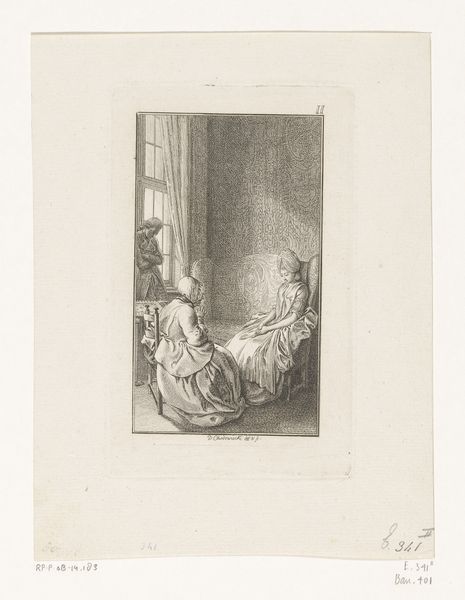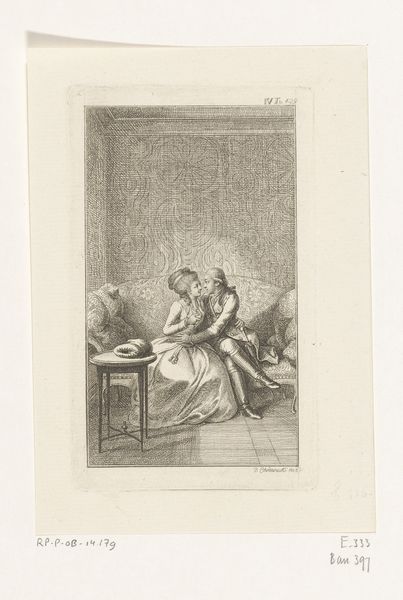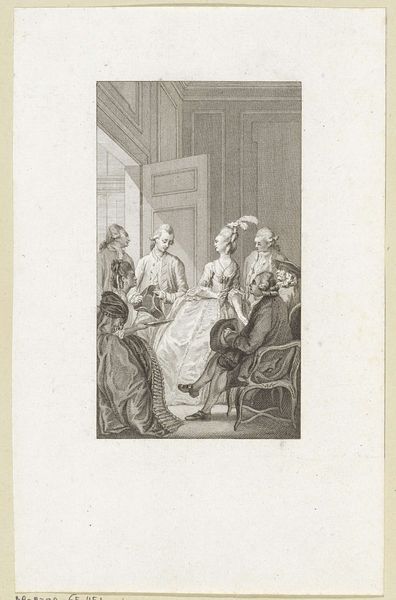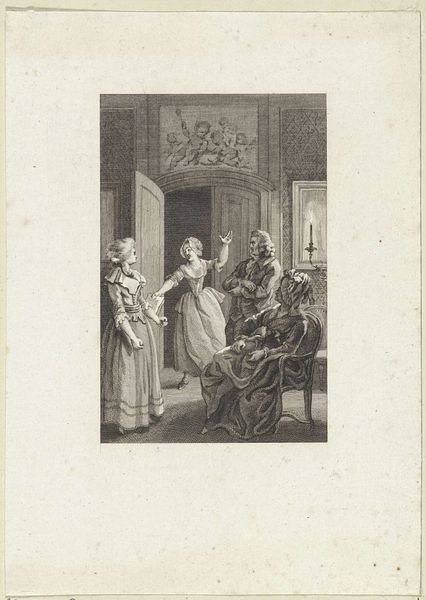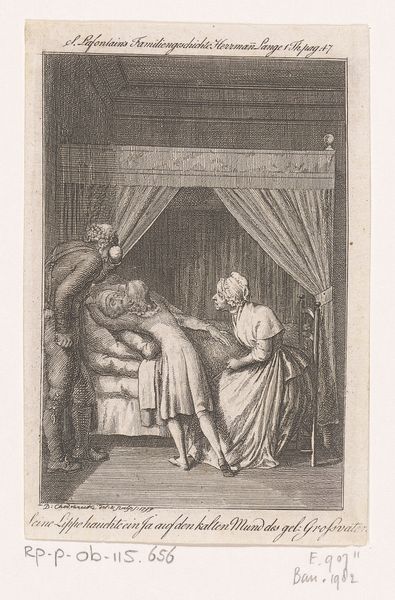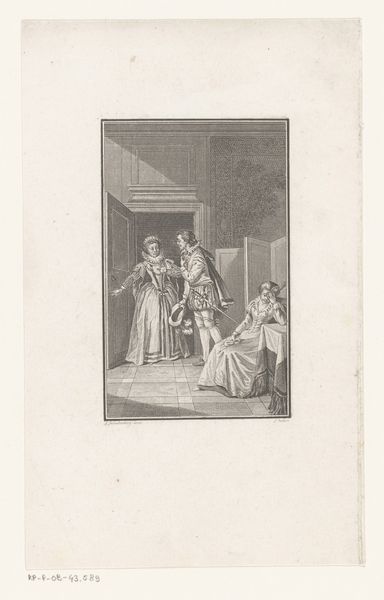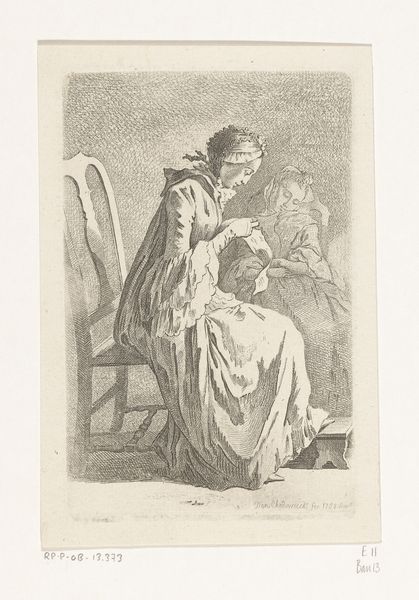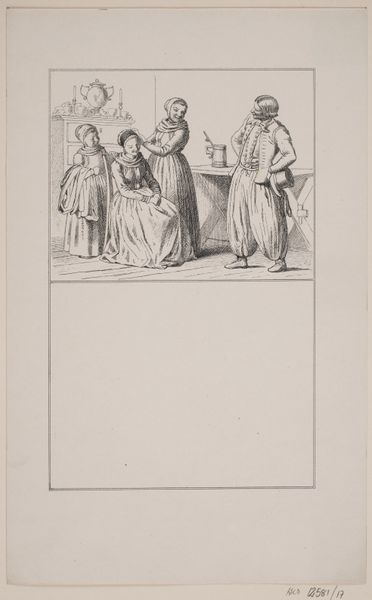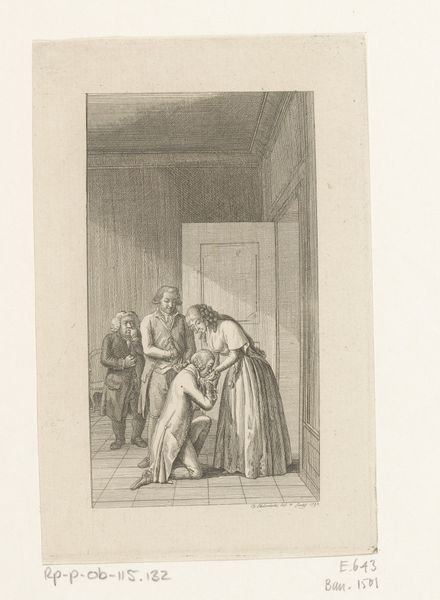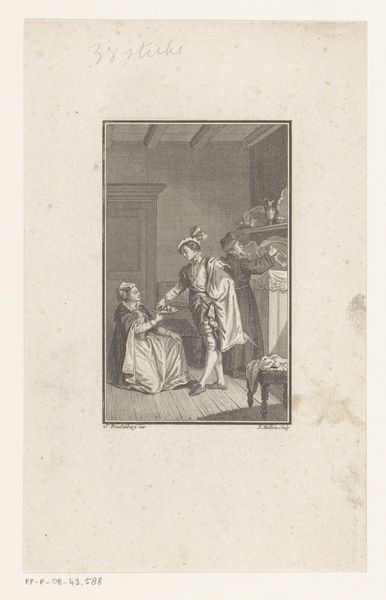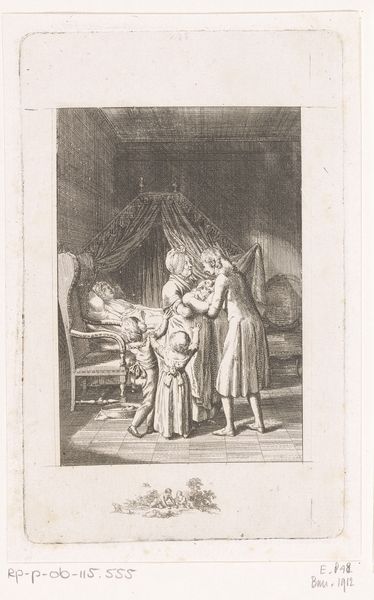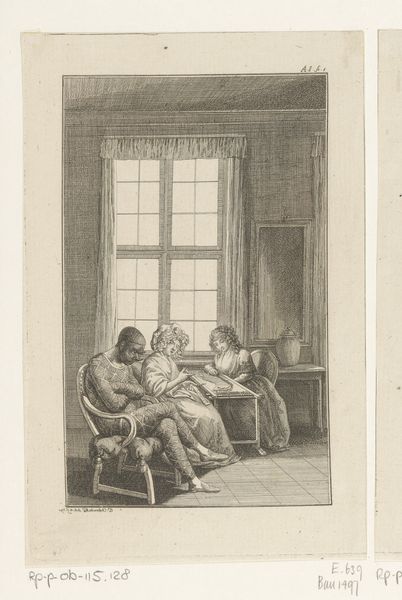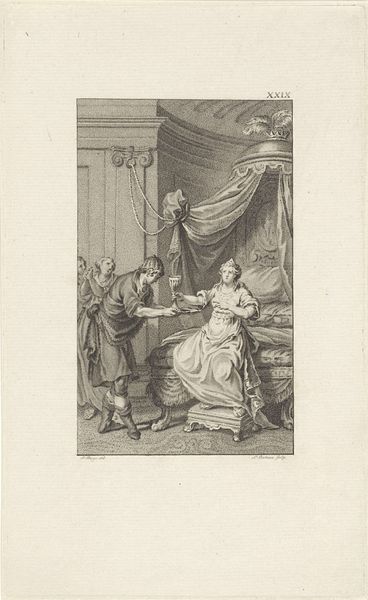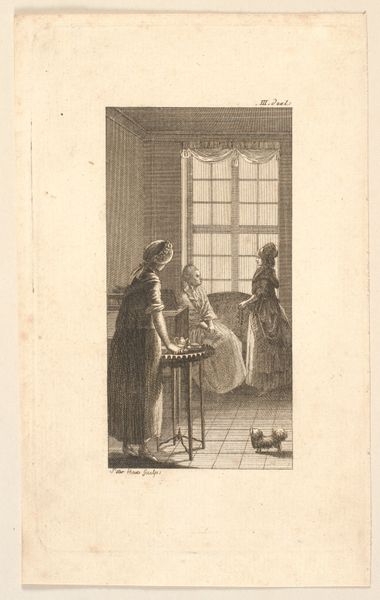
Dimensions: height 162 mm, width 103 mm
Copyright: Rijks Museum: Open Domain
This print, "Clarissa's gedwongen samenkomst met Solmes", was etched by Daniel Nikolaus Chodowiecki, a German-Polish artist active in the late 18th century. The print is made through a process called etching, a skilled, labor-intensive technique that involves coating a metal plate with wax, drawing a design into the wax, and then using acid to bite into the exposed metal, creating lines that will hold ink. The artist's skill is evident in the fine details of the composition, from the textures of the clothing to the subtle gradations of light and shadow. Chodowiecki's choice of etching is significant, as it allowed for the production of multiple copies, making art more accessible to a wider audience. This aligns with the broader social and political shifts of the Enlightenment, which emphasized reason, progress, and the democratization of knowledge. Consider the labor involved in creating this print: from the mining of the metal to the skilled craftsmanship of the etching process itself. By understanding the materials, making, and context of Chodowiecki's print, we can challenge traditional distinctions between fine art and craft, recognizing the inherent value and significance of all forms of creative expression.
Comments
No comments
Be the first to comment and join the conversation on the ultimate creative platform.
